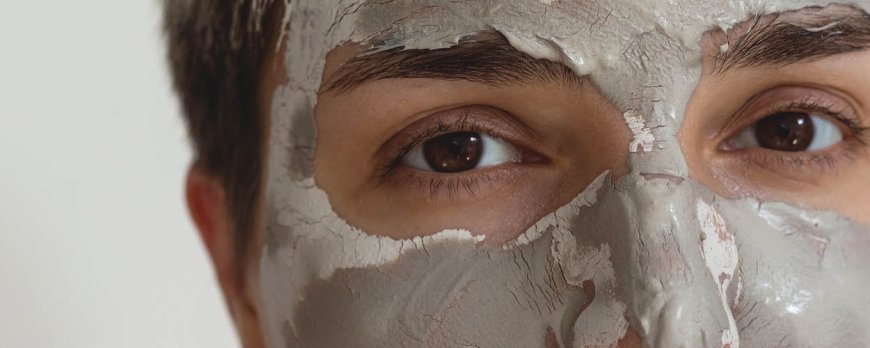What does it mean when your skin texture changes?
Decode skin health with our guide on 'What does it mean when your skin texture changes?'. Understand causes, symptoms and remedies for skin changes.

What does it mean when your skin texture changes?
Skin texture changes can occur due to various factors and understanding their meaning is essential for maintaining skin health. When your skin texture changes, it can be a result of various factors such as aging, genetics, sun exposure, lifestyle habits, and skin conditions. Aging causes the skin's sebaceous glands to shrink and the skin to become drier, while genetics can predispose individuals to experiencing skin texture changes. Sun exposure can lead to wrinkling, roughness, and uneven texture. Lifestyle habits such as smoking can also accelerate the aging process of the skin. Incorporating ingredients like vitamin C and retinol can help improve skin texture by preventing collagen loss and promoting new skin growth. However, it's important to be mindful of exfoliation as over-exfoliation can cause rough and thickened skin. If you notice a sudden change in your skin's texture, it's recommended to see a dermatologist to rule out any underlying issues. Finally, there are various preventive measures and treatment options available to improve the appearance of textured skin, including using sunscreen, exfoliating, and incorporating certain skincare ingredients.
Key Takeaways:
- Skin texture changes can result from factors like aging, genetics, sun exposure, lifestyle habits, and skin conditions.
- Aging causes the skin to become drier and less supple due to the shrinking of sebaceous glands.
- Genetics can play a role in predisposing individuals to experiencing changes in skin texture.
- Sun exposure can lead to wrinkling, roughness, and uneven texture.
- Lifestyle habits such as smoking can accelerate the aging process of the skin, affecting its texture.

Factors behind skin texture changes
Skin texture changes can be caused by a combination of factors, including aging, genetics, sun exposure, and lifestyle habits. As we age, the skin's sebaceous glands shrink, resulting in drier skin and a rougher texture. Genetics also play a role, as some individuals may be predisposed to experiencing changes in skin texture.
Sun exposure is another significant factor that can contribute to skin texture changes. Over time, UV radiation can cause wrinkling, roughness, and an uneven skin tone. Protecting your skin from the sun's harmful rays by using sunscreen and seeking shade can help maintain a smoother texture.
Lifestyle habits, such as smoking and excessive alcohol consumption, can also impact skin texture. Smoking, in particular, accelerates the aging process of the skin, leading to a dull and uneven complexion. It's important to be mindful of these habits and take steps to limit their effects on the skin.
Preventive measures and treatment options
- Incorporating ingredients like vitamin C and retinol into your skincare routine can help improve skin texture. These ingredients work by preventing collagen loss and promoting the growth of new skin cells, resulting in a smoother and more youthful complexion.
- However, it's important to use caution with exfoliation. While exfoliating can help remove dead skin cells and improve texture, over-exfoliation can lead to rough and thickened skin. It's best to follow the recommended guidelines for exfoliation and listen to your skin's needs.
- If you notice a sudden and significant change in your skin's texture, it's advisable to see a dermatologist. They can evaluate your skin and rule out any underlying skin conditions or health issues that may be contributing to the changes.
- Lastly, there are various preventive measures and treatment options available to improve the appearance of textured skin. This may include using sunscreen daily to protect against sun damage, exfoliating regularly to remove dead skin cells, and incorporating skincare products with specific ingredients known for their skin-smoothing properties.
By understanding the factors behind skin texture changes and taking appropriate preventive measures, you can maintain a smoother and healthier complexion.

Signs of Skin Texture Changes
There are several signs that can indicate changes in skin texture, such as roughness, dryness, unevenness, and the appearance of wrinkles. When your skin becomes rough, it may feel bumpy or have a sandpaper-like texture. Dryness can manifest as flaky or tight skin, while unevenness can be noticed by the presence of visible pores or an overall lack of smoothness. The appearance of wrinkles or fine lines can also be a sign that your skin's texture is changing. These signs can occur individually or in combination, and they often become more prominent with age or exposure to external factors.
Roughness and Dryness:
Rough and dry skin can be caused by a loss of moisture and a decrease in natural oils. This can be influenced by factors such as aging, environmental conditions, and improper skincare routines. It is important to keep the skin hydrated by using moisturizers and avoiding harsh cleansing agents that can strip away natural oils.
Unevenness:
Uneven skin texture can be a result of various factors, including sun damage, acne scars, or the buildup of dead skin cells. Regular exfoliation can help remove the outer layer of dead skin cells, promoting smoother and more even skin texture. However, it is crucial to avoid over-exfoliation, as this can lead to irritation and further texture issues.
Wrinkles and Fine Lines:
Wrinkles and fine lines are often associated with aging and are a natural part of the skin's maturation process. However, certain lifestyle factors, such as smoking and sun exposure, can accelerate the development of these skin texture changes. Protecting your skin from harmful UV rays with sunscreen and adopting a healthy lifestyle can help minimize the appearance of wrinkles and maintain smoother skin texture.
Recognizing the signs of skin texture changes is essential for understanding and addressing any underlying issues. If you notice persistent or sudden changes in your skin's texture, it is recommended to consult a dermatologist. They can provide a proper diagnosis, identify potential causes, and recommend appropriate treatment options to help improve your skin texture.

Understanding Skin Texture Changes
To understand skin texture changes, it is important to consider the underlying processes that affect the skin, such as collagen loss and sebaceous gland activity. As we age, our skin goes through natural changes that can impact its texture. The sebaceous glands, which are responsible for producing oil, gradually shrink, causing the skin to become drier. This can lead to a rougher, more uneven texture.
Genetics also play a role in skin texture changes. Some individuals are genetically predisposed to experiencing certain skin conditions or aging signs that can affect the texture of their skin. Additionally, external factors like sun exposure can have a significant impact on skin texture. Over time, prolonged exposure to the sun's harmful UV rays can lead to wrinkling, roughness, and an uneven skin texture.
Factors Affecting Skin Texture
- Aging and decrease in sebaceous gland activity
- Genetics and predisposition to certain skin conditions
- Sun exposure and its damaging effects
Lifestyle habits also contribute to changes in skin texture. Smoking, for example, accelerates the aging process of the skin, making it more prone to developing a rough and uneven texture. Moreover, poor skincare routines or the use of harsh exfoliants can cause the skin to become thickened or even sensitized.
To improve skin texture, incorporating certain skincare ingredients can be beneficial. Ingredients like vitamin C and retinol have been known to promote collagen production, prevent collagen loss, and encourage new skin cell growth. However, it's important to be cautious with exfoliation, as over-exfoliating can lead to rough and thickened skin.
When you notice a sudden change in your skin's texture, it's advisable to seek professional advice from a dermatologist. They can help identify any underlying skin conditions or provide personalized treatment options to address the specific concerns you may have. Remember, there are preventative measures you can take to maintain healthy skin texture, such as using sunscreen daily, practicing gentle exfoliation, and incorporating specific skincare ingredients into your routine.
Remedies for Skin Texture Changes
There are several remedies that can help improve skin texture, including the use of skincare ingredients like vitamin C and retinol, as well as preventive measures like sunscreen and exfoliation.
1. Skincare Ingredients:
- Vitamin C: This powerful antioxidant helps stimulate collagen production, which can improve skin texture and reduce the appearance of fine lines and wrinkles.
- Retinol: A derivative of vitamin A, retinol promotes cell turnover and stimulates collagen production, resulting in smoother and more refined skin texture.
2. Preventive Measures:
- Sunscreen: Protecting your skin from harmful UV rays is crucial for maintaining healthy skin texture. Look for a broad-spectrum sunscreen with at least SPF 30 and apply it generously before sun exposure.
- Exfoliation: Regular exfoliation can help remove dead skin cells and promote a smoother skin texture. However, be cautious not to over-exfoliate as it can lead to irritation and damage.
It's important to note that while these remedies can be effective, results may vary depending on individual skin types and conditions. It's always recommended to consult with a dermatologist to determine the best course of action for your specific needs.

Preventive Measures for Textured Skin
By incorporating certain lifestyle habits and skincare routines, it is possible to prevent or minimize changes in skin texture. Here are some preventive measures that can help maintain healthy and smooth skin:
- Protect your skin from the sun: Sun exposure is one of the main factors that contribute to changes in skin texture. To protect your skin, apply a broad-spectrum sunscreen with at least SPF 30 before going outside. Wear protective clothing, such as wide-brimmed hats and long sleeves, and seek shade when the sun is at its strongest.
- Exfoliate regularly: Gentle exfoliation helps remove dead skin cells and promotes cellular turnover, resulting in smoother skin. Use a mild exfoliating cleanser or a chemical exfoliant containing ingredients like alpha hydroxy acids (AHAs) or beta hydroxy acids (BHAs). However, be cautious not to over-exfoliate, as this can lead to skin irritation and dryness.
- Maintain a healthy lifestyle: Certain lifestyle habits can contribute to changes in skin texture. Quit smoking, as it can accelerate the aging process and cause the skin to appear dull and rough. Stay hydrated by drinking plenty of water, as dehydration can affect skin elasticity and texture. Eating a balanced diet rich in fruits, vegetables, and nutrients can also support overall skin health.
- Use skincare ingredients that promote skin renewal: Incorporating skincare ingredients like retinol and vitamin C can help improve skin texture. Retinol stimulates collagen production and promotes cellular turnover, while vitamin C brightens the skin and protects against free radicals. Look for products that contain these ingredients and incorporate them into your skincare routine.
- Stay consistent with your skincare routine: Consistency is key when it comes to maintaining healthy skin texture. Establish a skincare routine that includes cleansing, moisturizing, and protecting your skin daily. Stick to the routine and give your skin time to adjust and respond to the products you're using.
By following these preventive measures and being proactive in caring for your skin, you can help minimize changes in skin texture and maintain a smoother, more youthful complexion.
The Role of Dermatologists
If you notice a sudden or drastic change in your skin texture, it is recommended to consult a dermatologist for a proper diagnosis and treatment plan. Dermatologists are medical professionals who specialize in skin health and can provide expert guidance on identifying the underlying causes of skin texture changes.
During a dermatology consultation, your dermatologist will carefully examine your skin, discuss your medical history, and ask about any symptoms you may be experiencing. They may also perform additional tests or procedures to gather more information about your skin condition.
Based on their evaluation, dermatologists can offer personalized treatment recommendations to address your specific skin texture concerns. This may include prescribing topical medications, suggesting lifestyle modifications, or recommending procedures such as chemical peels or laser resurfacing.
In addition to diagnosing and treating skin conditions, dermatologists can also provide valuable advice on preventive measures to maintain healthy skin texture. They can offer guidance on establishing a skincare routine tailored to your needs, recommend suitable products or ingredients to improve skin texture, and educate you on the importance of sun protection.

Incorporating Skincare Ingredients for Improved Skin Texture
When your skin texture changes, it can be a result of various factors such as aging, genetics, sun exposure, lifestyle habits, and skin conditions. Aging causes the skin's sebaceous glands to shrink and the skin to become drier, while genetics can predispose individuals to experiencing skin texture changes. Sun exposure can lead to wrinkling, roughness, and uneven texture. Lifestyle habits such as smoking can also accelerate the aging process of the skin.
Certain skincare ingredients, such as vitamin C and retinol, have been found to be effective in improving skin texture by promoting collagen production and cellular turnover. Vitamin C is a potent antioxidant that helps protect the skin from free radicals and enhances collagen synthesis, resulting in a smoother and more even complexion. Retinol, a derivative of vitamin A, stimulates cell turnover, reduces the appearance of fine lines and wrinkles, and improves overall skin texture.
However, it's important to be mindful of exfoliation as over-exfoliation can cause rough and thickened skin. Gentle exfoliation using chemical exfoliants like alpha hydroxy acids (AHAs) or beta hydroxy acids (BHAs) can help remove dead skin cells and promote a smoother texture. Additionally, incorporating moisturizing ingredients like hyaluronic acid and peptides can help maintain skin hydration and improve overall texture.
If you notice a sudden change in your skin's texture, it's recommended to see a dermatologist to rule out any underlying issues. They can provide personalized recommendations and prescribe targeted treatments based on your specific skin concerns. Finally, there are various preventive measures and treatment options available to improve the appearance of textured skin, including using sunscreen daily, exfoliating regularly, and incorporating certain skincare ingredients that are suitable for your skin type and concerns.
Conclusion
Skin texture changes can be attributed to various factors, and understanding their meaning, causes, signs, and available remedies is crucial for maintaining healthy and youthful-looking skin. By adopting preventive measures, seeking professional advice when needed, and incorporating suitable skincare ingredients, individuals can effectively manage and improve skin texture.
Factual data shows that skin texture changes can occur due to aging, genetics, sun exposure, lifestyle habits, and skin conditions. As we age, the skin's sebaceous glands shrink, resulting in drier skin and a change in texture. Genetics can also play a role in predisposing individuals to skin texture changes. Sun exposure can lead to wrinkling, roughness, and an uneven texture. Lifestyle habits such as smoking can accelerate the aging process of the skin.
To improve skin texture, incorporating ingredients like vitamin C and retinol can be beneficial. Vitamin C helps prevent collagen loss and promotes new skin cell growth, while retinol stimulates collagen production and improves skin texture and tone. However, it's important to be cautious with exfoliation, as over-exfoliation can cause rough and thickened skin.
If you notice a sudden change in your skin's texture, it's recommended to seek the advice of a dermatologist. They can help rule out any underlying skin conditions or issues that may be causing the texture changes. Dermatologists can provide personalized recommendations and treatment options tailored to your specific needs.
Preventive measures are also key in maintaining healthy skin texture. These include using sunscreen daily to protect the skin from damaging UV rays, exfoliating regularly to remove dead skin cells and promote cell turnover, and adopting a healthy lifestyle with a balanced diet, regular exercise, and adequate hydration. Additionally, incorporating suitable skincare ingredients into your routine can further enhance skin texture, such as hyaluronic acid for hydration, peptides for collagen production, and niacinamide for skin barrier support.
In conclusion, understanding skin texture changes and taking proactive steps to address them can help individuals achieve and maintain healthier, more radiant skin. By combining preventive measures, professional guidance, and effective skincare ingredients, it is possible to manage and improve skin texture for a smoother, more youthful complexion.
FAQ
What does it mean when your skin texture changes?
When your skin texture changes, it can indicate various factors such as aging, genetics, sun exposure, lifestyle habits, and skin conditions.
What are the factors behind skin texture changes?
Skin texture changes can be caused by aging, genetics, sun exposure, lifestyle habits, and skin conditions.
What are the signs of skin texture changes?
Signs of skin texture changes may include wrinkling, roughness, uneven texture, dryness, and thickened skin.
How can I understand skin texture changes?
Understanding skin texture changes involves recognizing the causes and effects of aging, genetics, sun exposure, lifestyle habits, and skin conditions on the skin's appearance.
What are some remedies for skin texture changes?
Remedies for skin texture changes may include using skincare ingredients like vitamin C and retinol, practicing proper exfoliation, and incorporating certain treatment options.
What are some preventive measures for textured skin?
Preventive measures for textured skin include using sunscreen, practicing proper exfoliation, and maintaining a healthy lifestyle.
When should I see a dermatologist for skin texture changes?
If you notice a sudden or severe change in your skin's texture, it's recommended to see a dermatologist to rule out any underlying skin conditions.
Are there specific skincare ingredients that are beneficial for improving skin texture?
Yes, ingredients like vitamin C and retinol can help improve skin texture by preventing collagen loss and promoting new skin growth.

































































































































